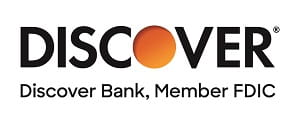Federal Work-Study (FWS) is a financial aid program designed for students with financial need, allowing both undergraduates and graduates to earn money through part-time jobs. Students can choose to work either on-campus or off-campus. The program covers up to 75% of the wages through federal funding, while the college or university contributes the rest.
Federal Work-Study offers eligible students a double incentive: the ability to earn money to help meet college expenses, plus the opportunity to gain valuable job experience. In today’s competitive job market, employers desire applicants who have work experience in addition to their education.
In 2013-2014, about 672,000 students earned a total of more than $1.1 billion in Federal Work-Study funding, an average of about $1,669 per student. Approximately five percent of undergraduate students and one percent of graduate students receive Federal Work-Study awards. Federal Work-Study is more common among students in Bachelor’s degree programs, where 9.4% of students receive Federal Work-Study awards. This is especially true at 4-year private non-profit colleges, where more than a fifth of the students receive Federal Work-Study awards.
- Work-study is a form of employment offered through a school that may help pay for tuition or other education related college costs.
- Work-study eligibility requirements may vary by school but generally require you to demonstrate financial need.
Eligibility for Federal Work-Study
To qualify for a Federal Work-Study award, a student must file the Free Application for Federal Student Aid (FAFSA®), meet the general eligibility requirements for federal student aid, demonstrate financial need, and be enrolled or accepted for enrollment, as an undergraduate, graduate, or professional degree-seeking student.
Types of Federal Work-Study Jobs
Eligible Federal Work-Study employment may be on- or off-campus.
Eligible Federal Work-Study employers include:
- The college or university (certain restrictions apply to proprietary schools)
- State or local public agencies if the work is in the public interest
- Federal agencies, except the U.S. Department of Education, if the work is in the public interest
- Private non-profit organizations if the work is in the public interest
- For-profit organizations
Federal regulations define work in the public interest as work performed for the national or community welfare rather than work performed to benefit a particular interest or group.
With limited exceptions, each college or university participating in the Federal Work Study program must spend at least seven percent of its FWS allocation to compensate students employed in community service positions. Community services are designed to improve the quality of life for community residents (particularly low-income individuals) and/or to solve problems related to their needs. Community service jobs may also include:
- Reading tutors for preschool-age or elementary school children
- Math tutors for elementary and middle-school students
- Family literacy projects performing family literacy activities
Colleges are encouraged to employ students in projects that focus on civic education and participation, including projects that teach civics in schools, raise awareness of government functions and increase civic participation.
To the extent practicable, the school must give priority to the employment of students in projects that educate or train the public about evacuation, emergency response and injury prevention strategies relating to natural disasters, acts of terrorism and other emergency situations. The college or university must ensure that students employed in such positions receive appropriate training.
Federal Work-Study employment may not be used to replace or displace regular campus or contract employees. A student who receives academic credit for employment in a FWS position must be paid at the same rate as if no academic credit was received, be paid only if the employer would normally pay others for performing the same work in the same job position and not be paid for receiving instruction in a classroom, laboratory or other academic setting.
Minimum or Maximum Federal Work-Study Awards
There is no minimum or maximum award amount a student may be awarded in Federal Work Study funds. A school calculates a student’s award amount based on the amount of available funds from the federal government and the college’s own resources, the number of eligible students and their demonstrated financial need and the college’s packaging policy.
Undergraduate students must be paid on an hourly basis. Graduate students may be paid on an hourly basis or by salary. The college is ultimately responsible to ensure students receive compensation for the work performed, regardless of where students are employed.
A Federal Work-Study student must be paid at least the greater of the federal, state or local municipality minimum wage. The current federal minimum wage is $7.25 per hour. Some states and municipalities have higher minimum wages.
All other federal, state and local laws governing regular employment also apply to Federal Work-Study jobs.
The student must be paid on at least a monthly basis. Payment may be made by check, electronic funds transfer (EFT) to a bank account specified by the student or as a credit to the student’s account at the college.
Caution about Working Too Much
Studies have shown that working part-time (no more than 12 hours per week) during the academic term can improve a student’s academic performance as compared with students who do not work. In fact, an analysis of data from the 2009 follow-up to the 2003-04 Beginning Postsecondary Students longitudinal study (BPS:04/09) showed that students who worked up to 12 hours a week had higher Bachelor’s degree attainment rates than students who did not work. However, working more than 12 hours a week caused declines in graduation rates. Students who work full-time while in college are half as likely to graduate within six years as compared with students who work 12 hours or less per week.
Tax Status of Federal Work-Study Earnings
Federal Work-Study earnings are included in adjusted gross income (AGI) and are subject to federal and state income taxes. However, if the student is enrolled full-time and works less than half-time (20 hours per week), the Federal Work-Study earnings are exempt from FICA taxes.
What to Read Next
Best Private Student Loans for November 2024











